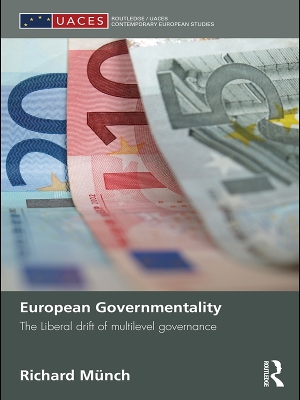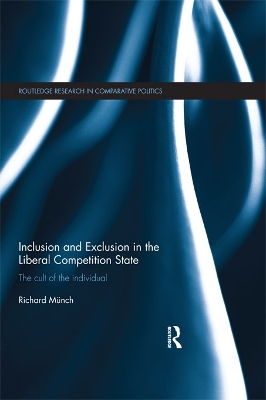Routledge Research in Comparative Politics
2 total works
This book contributes to the literature on the change of governance in the context of its European multilevel organization. The integration of Europe is a process of fundamental social change: a process of constructing a European society and of deconstructing the national societies.
Münch demonstrates that there is a movement away from republican and representative features of a democracy and towards liberal and pluralistic features. The book illustrates this change in the nature of European political regulation, European jurisdiction and the intellectual debates in France, Germany and Britain on legitimising the emerging system of multilevel governance. He discusses how far the new European regime of liberal governmentality converges with the US-American type of constitutional liberalism. Following a sociological approach, the book focuses on identifying the causes, features and consequences of the fundamental social change taking place in the process of European integration.
This book will be of interest to scholars and graduate students from political science, sociology, law and philosophy interested in political theory, comparative politics, international relations and political communication as well as practitioners of policy-making in governments, administration, parties, associations and the media.
Inclusion and Exclusion in the Liberal Competition State
by Richard Munch
This book examines the increasingly international division of labour, which promotes transnational integration. It analyses the change in worker solidarity as it moves from collective national welfare to a transnational inclusion of workers from various links in the production chain.
Examining three types of welfare regimes within the USA, Germany, Denmark and Sweden, the author addresses how and why globalization is furthering the change from the welfare state to the competition state. The book considers in particular the change to solidarity taking place because of the internationalization of labour division; a change away from the segmented and differentiated system of nation states with strong internal national solidarity to broader, more inclusive and cross-border labour identity and inclusion. Analysing the deeper moral consequences of a globalised labour society, such as the paradigms of inclusion and justice, this book considers the implications of transnational labour on national welfare politics, and looks at the increasing significance of the transnational and national politics of inclusion in social policy, education, minority rights, immigration and gender equality.
Inclusion and Exclusion in the Liberal Competition State will be of interest to scholars and students of political science, sociology and social policy studying welfare state change.

